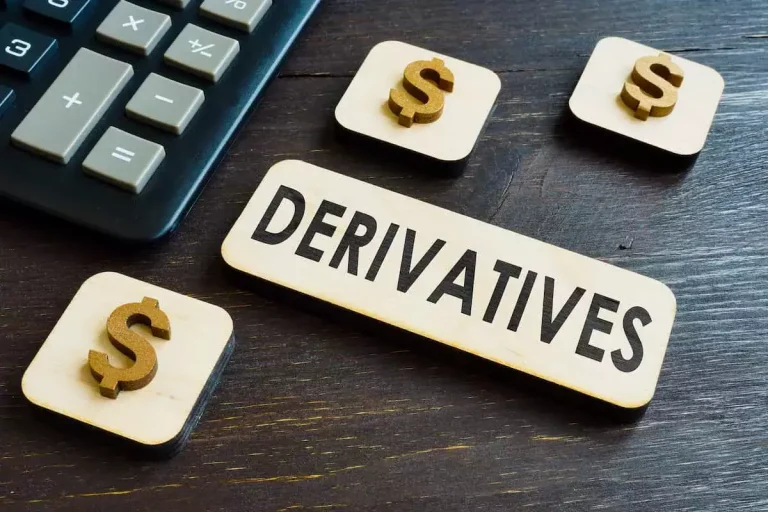Sometimes the user interface of non-custodial wallets also can seem a bit overwhelming for brand new customers. Yes, the BitPay Wallet is a cell non-custodial crypto wallet which permits customers to simply buy, store, swap and spend their crypto from a single easy-to-use platform. Security features like multisig and optional key encryption supply peace of mind that your digital assets are protected. BitPay Wallet makes it easy for users to handle their belongings across platforms, including an easy integration to your Coinbase account.

When it involves backup and recovery prospects, self custodial wallets or non-Custodial crypto wallets lag behind the Custodial one. As a result, centralized pockets providers and exchanges grew into a variety of the most famous names within the space. They onboarded millions of individuals by providing a quicker, simpler method to get began — and importantly, a method for folks to simply uncover, purchase, and commerce new crypto assets.
Less Privacy, Kyc Necessities
If you need to have full possession and responsibility over your private keys, and subsequently, all of your crypto belongings, non-custodial choices are your greatest option for you. Non-custodial crypto wallets give you complete management of your keys and due to this fact your funds. While some individuals store large quantities of crypto on change accounts, many really feel extra snug with a non-custodial pockets, which eliminates a third-party between you and your crypto. Users must be additional responsible with non-custodial wallets because dropping one’s personal keys means losing their funds eternally. Apart from the seed phrase, there isn’t a approach to restore an account if a user loses their password.
Non-custodial wallets are gaining continued traction additionally through the arrival of account abstraction (AA) and its advantages in the Ethereum area. Leveraging AA and features like social login/recovery and dApp integration could make non-custodial wallets the safest and most feature-rich option for the future. However, experienced crypto fanatics usually favor non-custodial wallets for their control, flexibility and safety, especially when holding long-term property. Custodial and non-custodial wallets are totally different purposes of personal key administration. However, you must ensure that your wallet supports the cryptocurrency you propose to retailer.
A Authorized Information To Custodial & Non-custodial Wallets
Additionally, self-custody choices do not require customers handy over any info via a KYC or AML course of. Exchanges are recognized to be the holders of private keys, and their services are interacted with on-line, which makes them a steady target for hackers. You could even lose your funds to authorities seizure within the occasion an trade that holds your personal key goes bankrupt. Yes, non-custodial wallets are usually custodial vs non-custodial safe for customers, however it’s the user’s responsibility to maintain their private keys safe and have a correct backup. A private key is a cryptographically generated string of characters that acts as a password to handle person funds and create a backup pockets on a new device.
- If you need to have full possession and accountability over your private keys, and subsequently, all your crypto belongings, non-custodial choices are the greatest choice for you.
- These service suppliers will almost at all times require identity verification (KYC).
- Self-custody wallets are an acceptable choice for customers preferring long-term holding and who want full responsibility for their non-public keys.
- For this reason, even a malware-infected pc or cellphone can’t access your funds when you’re utilizing a non-custodial hardware wallet.
This reduces the danger of data being stolen, until the user shares the primary points with someone, or their system will get stolen. A Custodial Wallet is defined as a wallet in which the non-public keys are held by a 3rd get together. Meaning, the third party has full management over your funds whilst you solely have to provide permission to ship or receive funds.
Remember that the same tokens could additionally be available on a number of blockchains under totally different networks. A drawback of using non-custodial wallets is their accessibility and ease of use. They are typically less user-friendly and could be tough for first-time cryptocurrency holders.
How Do I Know If I Ought To Select A Custodial Or Non-custodial Wallet For My Project?
The responsibility of safeguarding your private keys shall be in their arms. Because they’re much like different purposes native on the Internet that only require a username and password, they’ve been capable of onboard tons of of tens of millions of customers into the world of crypto. Custodial wallet companies hold onto the non-public keys of the person, storing and securing them on the user’s behalf.

Custodial wallets also give users peace of thoughts that a misplaced or forgotten password doesn’t imply they lose entry to their funds. Most of the time providers or exchanges can merely reset your password with a quantity of security questions. If a non-custodial wallet holder loses their personal key, their funds could be unrecoverable. Non-custodial wallets provide you with complete control over your keys and funds with no third-party guardian. Furthermore, non-custodial transactions are sometimes sooner because there is no want for withdrawal approval. If you do not use a custodian, you avoid paying further custodial charges, which could be costly relying on your service provider.
They often supply additional services such as trading and lending, which may be convenient for customers on the lookout for simple all-in-one solutions. But before diving into custodial vs. non-custodial crypto wallets, we ought to always perceive crypto keys and their functions in wallets. This, nonetheless, implies that you’re entrusting your personal keys to a 3rd celebration.
Although customers are taking the danger of dropping their funds into their own arms, non-custodial crypto wallets offer higher protection against an information breach than custodial wallets. Some non-custodial wallets require web connectivity to operate, nevertheless, so offline hardware wallets are often the safest possibility in this regard. A non-custodial crypto pockets is one by which solely the holder can entry and control the non-public keys. Non-custodial wallets are the greatest option for users who need complete management over their funds.
Fortunately, many non-custodial wallet providers give users a recovery phrase or “seed phrase”. This phrase consists of random words, serving as a kind of backup password restoration technique, even when a pockets is misplaced, deleted or destroyed. But this phrase should be guarded simply as rigorously as your private key, because anybody with the seed phrase will be ready to entry the account.

Examples of non-custodial wallets embody Metamask, Trust Wallet, Ledger Nano X, Trezor One, Zengo, Edge, Electrum, Exodus, Wasabi, and Phantom. This, in return, signifies that Non-Custodial wallets are a better option to get pleasure from full blockchain growth companies in real-time. If you have to ease your transactions, instantly buy/sell, and change crypto without moving your funds into exchanges and again a non-custodial software wallet is the best way to maintain your funds. Since 2018, he has had varied tasks underneath his belt, ranging from M&A transactions and ICO management to dealing with matters concerning Ukrainian legal guidelines on virtual belongings. Taras loves writing useful guides on Web3 authorized matters and attracts his inspiration from doing sports activities and studying books (his passion is the historical past of the 20th century). One essential component of finding the proper pockets on your crypto journey might be deciding who you will trust to safeguard your wallet’s private keys.
Now let’s dive into the understanding of Custodial vs. Non-Custodial wallets part where the benefits and downsides of both the crypto wallets are discussed. But earlier than we bounce to the half the place we glance into the Custodial vs. Non-Custodial comparison, let’s uncover the fundamentals of each the blockchain pockets sorts, beginning with Custodial Wallets first. Additionally, you must select between a cold and warm wallet, relying on whether you need it to be linked to the Internet or not. Moreover, you must choose whether or not to distribute your cryptocurrency holdings amongst different cryptocurrency wallets. This association means that you entrust the security and administration of your digital belongings to an exterior organization. The public keys are the public addresses that allow other customers to search out and interact or transact along with your blockchain tackle.
How you safeguard and access that vault is dependent upon the sort of pockets you choose. Users need to finish Know Your Customer (KYC) and Anti Money Laundering (AML) types for safety and regulatory compliance. With a custodial pockets, each transaction requires approval from the central change. The transaction historical past can be not recorded on the underlying blockchain in real-time, and transaction prices are typically higher due to the involvement of custodians and different intermediaries. There are different wallet varieties out there out there and every wallet has a corresponding public key and private key.
When researching custodial wallet providers, ensure they’re regulated, and learn how your non-public keys are saved and whether or not there may be insurance protection. Custodial wallets are like centralized banks, holding your property and keys while managing transactions for you. On the opposite hand, non-custodial wallets put you in the https://www.xcritical.com/ driver’s seat and hand the keys to you, granting you full control and accountability. Custodial crypto wallets compliant with current regulatory regimes are normally safer than non-compliant wallets. Users can even opt for custodial wallets that offer insurance coverage for theft or misuse of funds.
Many folks discovered the hard means that when you lost your keys, you misplaced access to your assets, eternally. The key distinction between custodial and non-custodial wallets is who has custody of the wallet’s personal keys — and, therefore, management of the funds. With a non-custodial wallet, you’ve sole management of your private keys, which in flip management your cryptocurrency and prove the funds are yours.
